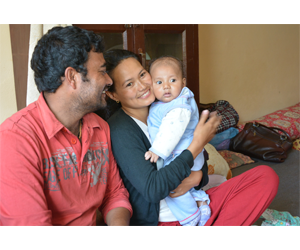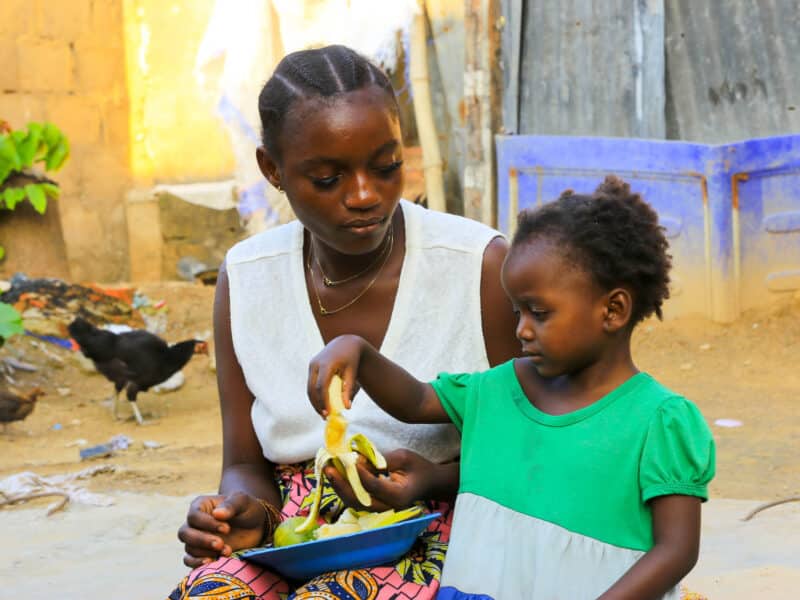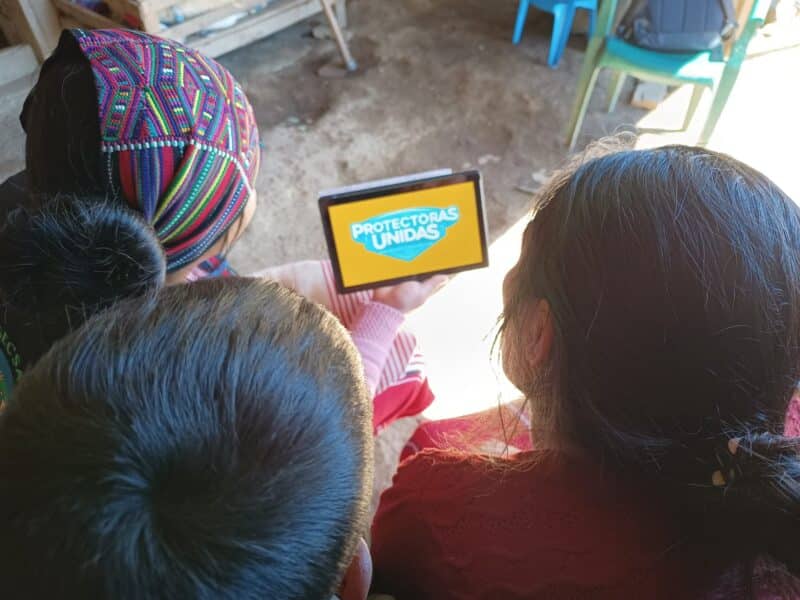Kitti, a grandmother in Nepal, firmly believed that if her lactating daughter-in-law ate meat, her grandson would fall sick. “If my grandson becomes ill, I will know whom to blame,” Kitti asserted with conviction.
Basmati, Kitti’s daughter-in-law, complied with her grandmother’s claim and as was practice in her community, avoided eating meat and leafy greens after giving birth to her first child.
But everything changed after Basmati and Kitty attended a community-based health education training run by the Suaahara project.
Suaahara, “good nutrition” in Nepali is a USAID-funded integrated nutrition project that works in 25 underserved districts in Nepal to improve the health, wellbeing and nutritional status of women and children during the ‘1000 days’ from when a woman becomes pregnant to the child’s second birthday. The Johns Hopkins Bloomberg School of Public Health Center for Communication Programs (JHU∙CCP) provides communication support to this project which seeks to teach women and their families better nutrition and hygiene practices.
In the Suaahara training, Basmati and Kitti learned about the benefits of meat and leafy greens for mothers and their babies. Although hesitant at first, Kitti introduced these foods into Basmati’s diet and watched her grandson grow strong and healthy. Thanks toSuaahara’s reassuring messages, Kitti and her community shifted their beliefs. Basmati now eats fruits, vegetables and meats on a regular basis.
Suaahara’s mission is to reach every 1000 days mother and child, no matter how remote the village. In one corner of Nepal, Shiva Pradhan, a father and locally-based worker trained by Suaahara, is working hard to spread nutrition messages in the field and in his own home.
After giving birth to their first son, Shiva’s wife, Parbati, feared that she did not have enough breastmilk to fulfill her son’s nutritional needs and wanted to supplement with water. The social norms in her community maintained that infants need water and other liquids during the first six months of life.
Applying his knowledge from Suaahara‘s trainings, Shiva made sure that Parbati understood the importance of exclusive breastfeeding, especially as it contributes to a child’s cognitive development in the early years.
Shiva also stressed the importance of their child receiving a diversity of complementary foods when he reaches six months of age, “Since he is small, he’ll only be breastfeeding until he’s six months old,” he explained. “Then we’ll start with small amounts of food, such as fruits, fish, meat, rice and water. And then we’ll gradually start feeding the child more.”
Seeing how well her son responded to this regimen of feeding, Parbati joined her husband as an agent for change within her community, seeking to shift her community’s social norms. Parbati is positive that with adequate support and knowledge, Nepali mothers can and will adopt key health behaviors.
On World Food Day 2013, JHU∙CCP applauds the Suaahara project’s dedication to family nutrition and the efforts of individuals like Kitti, Basmati, Shiva and Parbati.
Learn more about Suaahara.





